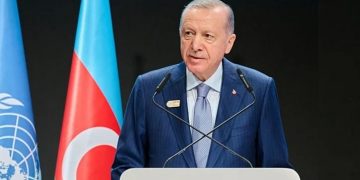 Islamist Mohammed Morsi who became Egypt’s first freely elected president on Saturday has begun to launch his 4-year full term with a possibly dangerous request to wrest back from the military the full authorization of his office.
Islamist Mohammed Morsi who became Egypt’s first freely elected president on Saturday has begun to launch his 4-year full term with a possibly dangerous request to wrest back from the military the full authorization of his office.
The consequence of the close struggle between Egypt’s first civilian chairman and its powerful generals will redraw the country’s political landscape after sixty years of de facto armed forces rule.
If Morsi succeeds, the Muslim Brotherhood will probably be cheered to press ahead with actualising the longtime destination of building Egypt an Islamic state. Differently the military – which has been unwilling to abandon the power it accepted after Mubarak ousting – will keep going its stranglehold on the country for years, perhaps decades, to come up.
For Egypt’s approximated 82 million people, the aspect of a carrying on combat between the military and the Brotherhood, the country’s biggest political group, will only extend the political instability that has shook their nation since Hosni Mubarak’s ousting last year. Egyptians have come across the first euphoria following the revolution turn into a wave of pessimism among a worsening economy, arising crime and a apparently continuous wave of protestations, affects and sit-ins.
The yearning for stableness was carried by 2 big figures. Nobel Peace Laureate Mohamed ElBaradei, also Egypt’s top pro-democracy advocate, tweeted that it was time to dissolve the difficult issues of the new establishment, the president’s powers and lawmaking. “At present, the time for establishing has come, to accomplish the revolution’s goals,” he stated.
Gamal Eid, a familiar rights attorney and activistic, saw in Morsi’s inauguration the chance for someone in power to be held responsible. “Now the ball is in the president’s courtroom after he became the first elected president of Egypt. Now we may hold him responsible either with or without authorities.”
Both sides – Morsi and the military – made a appearance of integrity during the inauguration ceremonies that started with the 60-year-old U.S.-trained engineer which is being affirmed in at the Supreme Constitutional Court, then making an address a few hours later at Cairo University as the ruling generals clapped with politeness.
Morsi repeated his oath of office in the university’s big lecture hall and extravagantly praised the military council, which had promised to deliver power to a civilian government by July 1 merely pushed through a series of decrees this month stripping the president of important powers before doing so.
The decrees gave the military legislative authorisation after the parliament was resolved by court order in addition to the control over the process of drafting a lasting constitution. It also continued its influence on key domestic and foreign policy issues.
“The military are the shield and sword of the nation,” Morsi said an audience of several thousand people, including many members of the disbanded Islamist-dominated parliament.
“I pledge before God that I will guard that institution, soldiers and commanders, arouse its prestige and back up it with all the powers available to me so it may be harder,” he added up.
But Morsi later came out to urge the military to deliver all powers to his elected administration.
“The (ruling) Supreme Council of the Armed Forces has rewarded its promise not to be a substitute for the popular will and the elected institutions will right away return to accomplish their duties as the glorious Egyptian army comes back to being committed to its mission of defending the nation’s borderlines and protection,” he stated.
Military ruler Field Marshal Hussein Tantawi’s arrival at the hall was greeted by conflicting chants of “the army and the people are one hand” and “down with military rule.” He and Gen. Sami Anan, the powerful chief of staff, displayed no emotion during Morsi’s address, but did occasionally applaud.
The military already has won the 1st round, driving Morsi to take his official oath of office before the court because there’s no parliament, the conventional venue for inaugurations.
The Supreme Constitutional Court is piled with judges appointed by Mubarak before his ouster and it’s the same court ruling 2 weeks ago that a 3rd of parliament’s members were elected illegally. Armed with that verdict, the military disbanded the chamber.
The Brotherhood has interrogated the legality of the military’s decree and asked the reinstatement of the legislature where it controlled just under half the seats. A few of the group’s leaders wanted Morsi to be sworn in before members of the dissolved legislature, but the idea was shelved over fears it could loose a crackdown by the military.
As an alternative, Morsi read an informal oath of office during a arousing speech before tens of thousands of supporters Friday in Cairo’s Tahrir Square, the epicentre of the revolution.
A court official being present at Saturday’s swear-in ceremony stated Morsi took a firm stand that the proceeding not be demonstrated live on television, choosing that they be registered and aired after his university address. The judges declined, warning him of legal repercussions. He sooner or later backed down but not before the ceremony was retarded by nearly 2 hours.
The official spoke on circumstance of anonymity because of the sensitivity of the subject, but Tahani el-Gebaly, one of the court’s 18 judges, gave similar comments to the state Al-Ahram daily newspaper.













